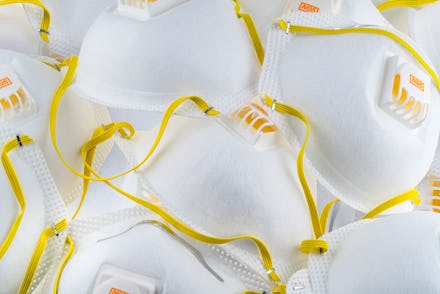Please don't fall for these coronavirus scams

While most of us struggle to simply maintain sanity in the midst of the COVID-19 pandemic, scammers are actively trying to prey on our fears. Count on internet jerks to kick us while we’re down. While some of these scams are just annoying, some can endanger your health, mental state, and financial well-being. Here are a few coronavirus scams to be aware of and actively avoid.
Fake antibody testing
We all hoped that antibody testing would be the thing that brought us back to normal. But not only are the officially sanctioned antibody tests unreliable, now scammers are targeting hopeful people by phone, email, and in ads on social media and offering them fake antibody tests. The CliffsNotes of this situation is that if someone offers you a test, it’s probably fake. Real labs don’t cold-call you.
Fake personal protective equipment (PPE)
Since the beginning of the pandemic, a lot of folks have been investing in PPE such as masks, gloves, and hand sanitizer. Unfortunately, this has led some fraudsters to create fake versions of life-saving products. And some scammers have websites that are entirely fake, so you’ll never receive the goods you order at all. Be careful who you give your credit card numbers to. Also, I don’t know who needs to hear this, but if someone shows you a card that says that they don’t have to wear a mask, it’s also fake.
Identity theft
Some experts say that we are having an identity theft pandemic that runs parallel with the novel coronavirus. Identity thieves are using the fact that we’re all doing a lot more shopping online to steal people’s identities. Sometimes they create fake accounts or hack into existing accounts in order to steal your stimulus check. If you’re shopping online, make sure you’re also keeping track of your account balances so that you can report any suspicious activity immediately.
Fake tracking apps
Contact tracing is one of the methods health officials use to track and curb the spread of COVID-19. Unfortunately, some criminals have made apps that look like contact tracing apps, but are really malware. Once you install them, they will allow scammers to spy on you. Be wary of any text bot messages telling you that you have been exposed to infection and need to install a tracer.